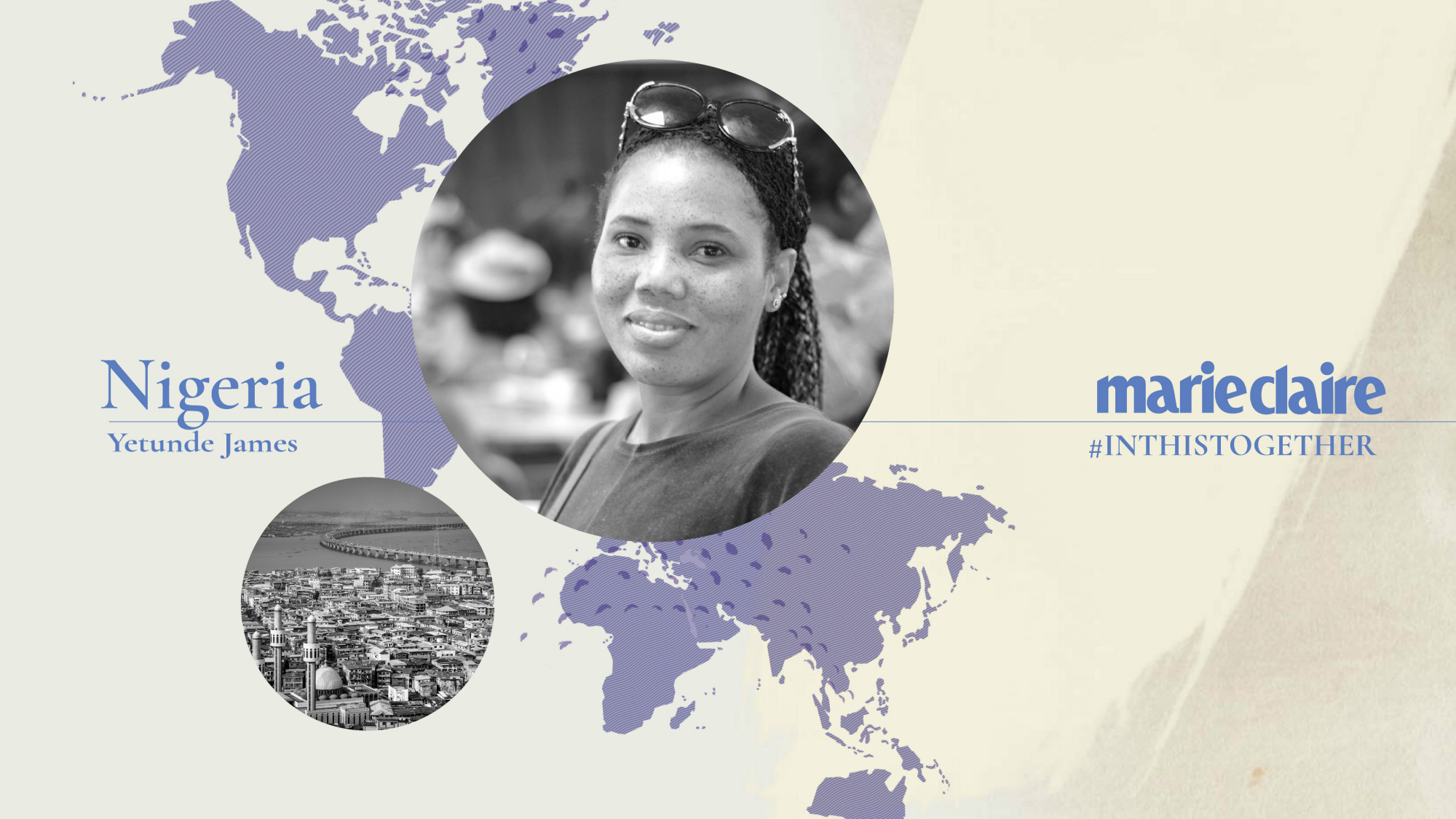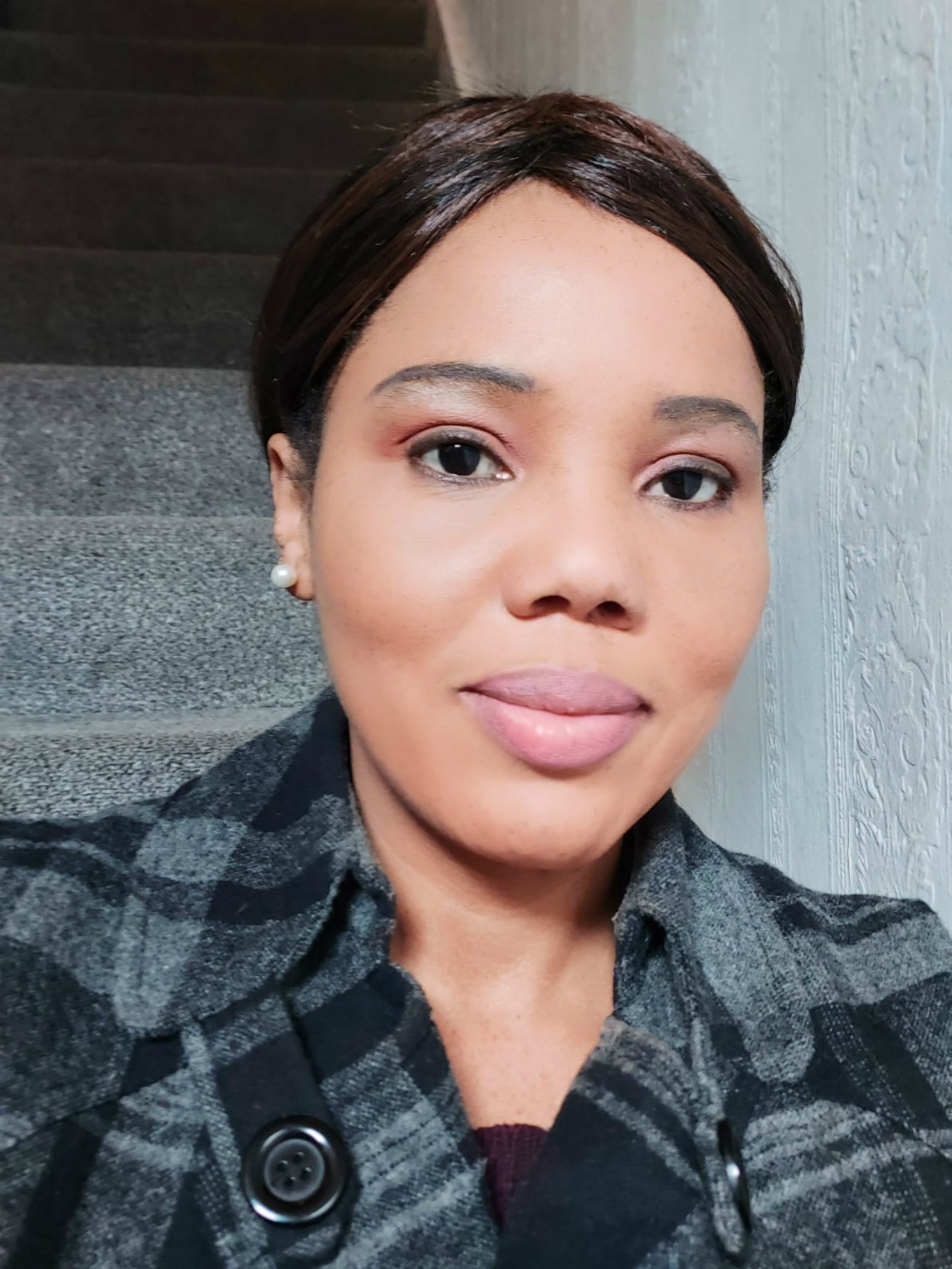Covid-19 Global Diaries: 'I'm a refugee in London and people like me are dying'
Fleeing persecution in Nigeria, Yetunde James arrived in the UK with dreams of a new and safe life. But coronavirus has taken her friends, put her life in danger and her plans to build a bright future on hold


Celebrity news, beauty, fashion advice, and fascinating features, delivered straight to your inbox!
You are now subscribed
Your newsletter sign-up was successful
Fleeing persecution in Nigeria, Yetunde James arrived in the UK with dreams of a new and safe life. But coronavirus has taken her friends, put her life in danger and her plans to build a bright future on hold
Refugee women need a lot of support and love at the moment because they are alone in a new country, facing many challenges to rebuilding their lives during the pandemic lockdown.
My community has been severely affected. I have lost one of my closest friends, five people I know personally and one of my neighbours to the virus. It’s heartbreaking. I don’t know why people like me are so affected and it makes me scared for myself.
I am currently living alone with my son in a one-bedroom flat in London, just trying to stay safe. I am lucky to have a network around me. Women for Refugee Women call me every week to find out how I am doing, and my friends also call me to check on my wellbeing. But I'm also constantly worried about not having enough food. I have run out of basic things such as bread, eggs and cereals. I've been forced to use food banks and need support from charities in order to get basic things such as period products and toilet rolls.
Since the coronavirus lockdown, I've not been able to rebuild my life in the way that I had dreamed. It's disorientating to discover that all my plans have stopped and changed. When I was awarded my refugee status, the support I had been given as an asylum seeker stopped. This had the effect of exacerbating my problem, as it's very complex to be accepted on to mainstream benefits, so I've been living for a while with no support coming in at all.

I came to the UK in 2005 seeking asylum, because I was looking for safety from persecution. I wanted to be able to stop living in fear. The asylum process was hard for me because to begin with I was refused protection. Like many refugee women, it was difficult for me to prove what I had been through. I told my story as best I could but to begin with the Home Office refused to believe me. I felt so isolated and afraid.
Eventually, after going to court, the Home Office had to start believing that I would be in real danger if I was returned to Nigeria. I got my refugee status and it felt great to finally be free from the fear of the unknown. I could move around without any risk of being stopped by immigration officers and deported back to my country, where my life would be at risk. As a refugee I also knew I would now have the right to apply for jobs and be able to provide for my son.
Celebrity news, beauty, fashion advice, and fascinating features, delivered straight to your inbox!
I'm 40 now and I can't wait for some sort of normality to return. I'm looking forward to visiting my friends and hopefully to start to work and contribute to this society. After everything I've lived through, I'm really trying hard to stay positive for myself and for my son. We must all remember that life will be beautiful again and we will have learned many important lessons.
* Yetunde is supported by the charity Women for Refugee Women, a London-based organisation that supports and empowers refugee women. Find them on @4refugeewomen
Maria Coole is a contributing editor on Marie Claire.
Hello Marie Claire readers – you have reached your daily destination. I really hope you’re enjoying our reads and I'm very interested to know what you shared, liked and didn’t like (gah, it happens) by emailing me at: maria.coole@freelance.ti-media.com
But if you fancy finding out who you’re venting to then let me tell you I’m the one on the team that remembers the Spice Girls the first time round. I confidently predicted they’d be a one-hit wonder in the pages of Bliss magazine where I was deputy editor through the second half of the 90s. Having soundly killed any career ambitions in music journalism I’ve managed to keep myself in glow-boosting moisturisers and theatre tickets with a centuries-spanning career in journalism.
Yes, predating t’internet, when 'I’ll fax you' was grunted down a phone with a cord attached to it; when Glastonbury was still accessible by casually going under or over a flimsy fence; when gatecrashing a Foo Fighters aftershow party was easy-peasy-lemon-squeezy and tapping Dave Grohl on the shoulder was... oh sorry I like to ramble.
Originally born and bred in that there Welsh seaside town kindly given a new lease of life by Gavin & Stacey, I started out as a junior writer for the Girl Guides and eventually earned enough Brownie points to move on and have a blast as deputy editor of Bliss, New Woman and editor of People newspaper magazine. I was on the launch team of Look in 2007 - where I stuck around as deputy editor and acting editor for almost ten years - shaping a magazine and website at the forefront of body positivity, mental wellbeing and empowering features. More recently, I’ve been Closer executive editor, assistant editor at the Financial Times’s How To Spend It (yes thanks, no probs with that life skill) and now I’m making my inner fangirl’s dream come true by working on this agenda-setting brand, the one that inspired me to become a journalist when Marie Claire launched back in 1988.
I’m a theatre addict, lover of Marvel franchises, most hard cheeses, all types of trees, half-price Itsu, cats, Dr Who, cherry tomatoes, Curly-Wurly, cats, blueberries, cats, boiled eggs, cats, maxi dresses, cats, Adidas shelltops, cats and their kittens. I’ve never knowingly operated any household white goods and once served Ripples as a main course. And finally, always remember what the late great Nora Ephron said, ‘Everything is copy.’
